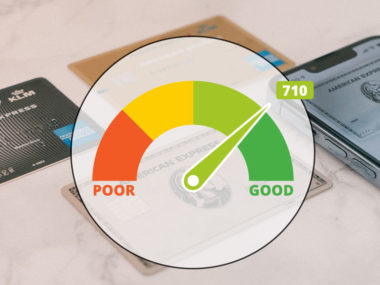The Fair Isaac Corporation (FICO) recently announced that they’ve developed a new system for calculating your credit score. If you’re the type of person that doesn’t use credit cards or rarely needs a loan, you might benefit from this new credit scoring system when it comes time to get a mortgage or auto loan.
But what if you already have a great FICO score? How will UltraFICO affect your current score? Does this new system change the parameters of a high score? Can you use the UltraFICO score to improve an already high credit score? We’ll explain everything you need to know about the new credit score, and how it might affect you.
Table of Contents
What Is UltraFICO?
The UltraFICO score is not replacing your old credit score. Ideally, it’s a way for people who haven’t yet built up their credit score, or who are working to rebuild, to prove that they can be trusted with a line of credit or a better interest rate.
It works like an alternative credit score. If you get denied credit based on your current FICO score, you can opt-in to get your UltraFICO score by requesting that Experian take your banking history into consideration. You will also decide which checking, savings, and money market accounts get looked at. This could give you a better chance at being approved for your credit, loan, or home.
How Is UltraFICO Different from FICO?
Your FICO score is the metric lenders, landlords, and creditors use to determine your dependability as a borrower. HIstorically, FICO scores are determined based on these five categories:
- Payment History (35 percent)
- Amounts Owed (30 percent)
- Length of Credit History (15 percent)
- New Credit (10 percent)
- Credit Mix (10 percent)
The UltraFICO score is used when you are denied credit based on your current FICO score. The UltraFICO score is calculated by taking your current FICO score and then evaluating your banking history in order to add up to 20 points to your credit score, depending on these factors:
- Keeping a balance of at least $400.
- Paying bills on time.
- Never overdrafting the account.
Who Benefits from UltraFICO?
The new UltraFICO system is designed to help those who have been at a disadvantage in the past from lenders, landlords, and creditors for low or no existing FICO credit scores. This might include people in these categories:
- Underbanked
- Self-employed
- Millennials
- Immigrant entrepreneurs
- Migrant savers and remitters
- People recovering from financial distress
This new credit scoring system could help millions of people improve their credit score to get a house in a better neighborhood, finance a car purchase, or start a business.
Who Will Use UltraFICO?
FICO explained that they will work with Experian and a company called Finicity to create the UltraFICO scores. When you are denied credit because of your FICO score, you can ask Experian to look into your banking account to determine your UltraFICO score. Experian will have Finicity collect and analyze your bank data and send the summary back to Experian. Your account transactional data is never shared with Experian, ensuring some level of privacy and protection. Remember that you can select which accounts are used and which are not.
Experian will issue your UltraFICO score and a summary of your bank data to the credit-reporting companies. If you believe there is a discrepancy with your new UltraFICO score, you can ask Experian to reevaluate your data. FICO won’t have access to your personalized bank account information. While all companies involved are working to protect your data, it could still be a risk that is up to you to decide if it’s worth it.
Lenders might be a bit slow to adopt the new UltraFICO score, but if you opt-in to the service, it should be widely available sometime in 2019.
Will My UltraFICO Score Affect My FICO Credit Score?
No. Since UltraFICO is an opt-in service for people with low to no credit scores, you won’t have an UltraFICO score as long as your FICO credit score is in good standing. However, you’ll always know that if you hit a rough patch or something happens to your healthy credit score, you can recover more quickly with an UltraFICO score as long as you keep a balance of at least $400, pay bills on time, and don’t overdraw your account.
Some people are worried that this new credit scoring system will shift an emphasis from how you manage your money to how much money you have or your income and assets. As you can see from the FICO score metrics listed above, your score has historically been determined by how well you manage your money, not the amount. Time will tell the unintended consequences of this new metric. Keep in mind that the UltraFICO system starts in 2019 and will take some time to affect consumers.
Image Source: https://depositphotos.com/





